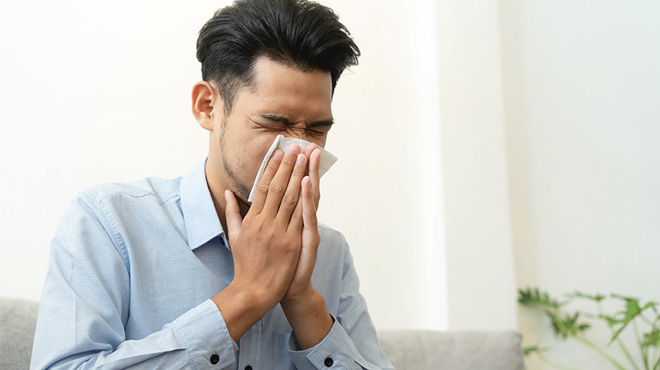Recent Posts
What you need to know about COVID-19 boosters

Health officials are developing a plan to begin offering COVID-19 booster shots to all people in the U.S. as soon as this fall to maximize vaccine protection.
But before booster shots can be offered, two things will need to happen:
- The Food and Drug Administration (FDA) will need to conduct an independent evaluation to determine the safety and effectiveness of a third dose of the Moderna or Pfizer messenger RNA vaccines.
- The Centers for Disease Control and Prevention's Advisory Committee on Immunization Practices will need to issue booster dose recommendations.
As for those who received the Johnson & Johnson (J&J) COVID-19 vaccine, it's too soon to tell whether booster shots will be recommended.
The Mayo Clinic News Network team sat down with Melanie Swift, M.D., co-chair of the Mayo Clinic COVID-19 Vaccine Allocation and Distribution Work Group. In this Q&A, Dr. Swift answers questions about COVID-19 booster shots.
What is a booster vaccine?
A booster vaccine is intended to be a reminder to your immune system. Right now, we're in a situation where we can see that over time immunity that people achieve from the COVID-19 vaccine does start to wane. The good news is that it's waning mostly against mild infection. We still do have protection from those early vaccine doses against severe infection. But we want to stop transmission and keep people from getting any form of infection. So boosters are going to be recommended for everyone.
How is a booster different from an additional dose, which has been recommended for people who are immunocompromised?
They're really different things with different purposes. The primary vaccination series is intended to build an initial immune response. Think of it like painting your house. You sometimes can get good coverage with one coat of paint, but occasionally you might need three coats of paint to get that good coverage. It's the same way with vaccines. Some people might have a great response to one dose, but most people need two doses of the messenger RNA vaccines to get a great response.
But what we've learned is that some people actually need a third dose to get a better response to that initial vaccine. And those people are immunocompromised. Their immune systems aren't working very well, and they do need additional doses of vaccine to respond.
Over time, once you've achieved that initial response, your immunity may still wane and you could need a booster. So you might need another coat of paint down the road when the initial one starts to wear thin or get stains on it. Giving another coat of paint is like giving a booster.
Will the booster shots be the same vaccine?
Right now, we are giving that third dose and planning to give that booster dose with the same formulation of the original vaccine. But that could change over time.
The manufacturers ― Pfizer and Moderna ― are studying variants of that initial messenger RNA vaccine that can be designed to cover mutations that some of the variants of concern are exhibiting. It may be that we get annual boosters, and over time each year, that might be a different vaccine that helps provide better protection against the coronavirus strains that are currently circulating ― much like we do with flu vaccine. We already have this concept. We get a new flu vaccine every year, and it covers different strains than previous years.
Does this recommendation suggest the COVID-19 vaccines are not effective?
A booster just means that your immune system will start to lose immunity over time. It doesn't mean that the initial vaccine didn't work. In fact, the immune response that we typically see in healthy people from the messenger RNA vaccines looks like it far exceeds what you really need in order to protect yourself.
We don't have a perfect lab test that will show us just how immune you are. But we do look at something called neutralizing antibodies that do seem to correlate fairly well with protection against infection. And the initial response is orders of magnitude more neutralizing antibodies than we actually need, or that people even achieve, after they actually get COVID-19 infection. So you get this overresponse. And then over time, those antibodies start to wane. Because there's this strong immune response over and above what we actually need, that can wane for months and months before we become vulnerable again.
What will be the possible side effects of a third dose?
So far, it looks like this side effect profile from a third dose is very similar to what was experienced with a second dose ― not any worse and perhaps a little milder. That probably has to do with the time that's elapsed since you last had that vaccine.
Getting that initial series, you're taking a vaccine three or four weeks after you just had it and your immune system is really responding robustly, giving people more of those side effects. But after months later, with a booster dose, it doesn't look like there's any more robust immune symptoms that people would have. They can expect to have those typical vaccine side effects: a headache, they could feel tired, they could have a low-grade fever, they could have some muscle aches. And those still happen really quickly and resolve on their own within two to three days.
Why should people consider getting a booster shot eight months after their second messenger RNA vaccine dose?
We are seeing some waning of immunity against the delta variant. We still do find that the vaccines are helping a lot to prevent severe disease and hospitalization, even this many months out. But clearly the delta variant has some resistance to that vaccination, and we want to stop its spread.
So boosting people now means that we can reduce those milder infections and those asymptomatic infections that contribute to spread. And remember when this virus is spreading in our community, even if it's not causing symptoms, it has the chance to mutate. Those mutations can randomly lead to the development of a new variant, and that variant might be even worse than the delta variant. So we need to do everything we can now to stop it.
Will people who received the J&J vaccine need a booster?
There are two interesting things about the J&J vaccine. One is that the company behind the vaccine ― Janssen ― is actually studying a second dose in that prime series. They're looking at spacing a second dose from that first dose two months apart. We don't have the results of that study yet, and the FDA hasn't given authorization for a second dose in the J&J series ― nor has there been any recommendation to do that. We're waiting for full results to be known of that study.
The second thing that's interesting about the J&J vaccine is that there are some data that show over the first six months some markers of immunity that we follow in the research study bloodwork show some improvement in immunity over time. Now, we don't know if that's going to translate into continuing to prevent infection at eight months, 10 months down the road. But it is a signal that there's something about that adenovirus vector that may make its actions more prolonged on the immune system than the messenger RNA vaccines.
Information in this post was accurate at the time of its posting. Due to the fluid nature of the COVID-19 pandemic, scientific understanding, along with guidelines and recommendations, may have changed since the original publication date.






